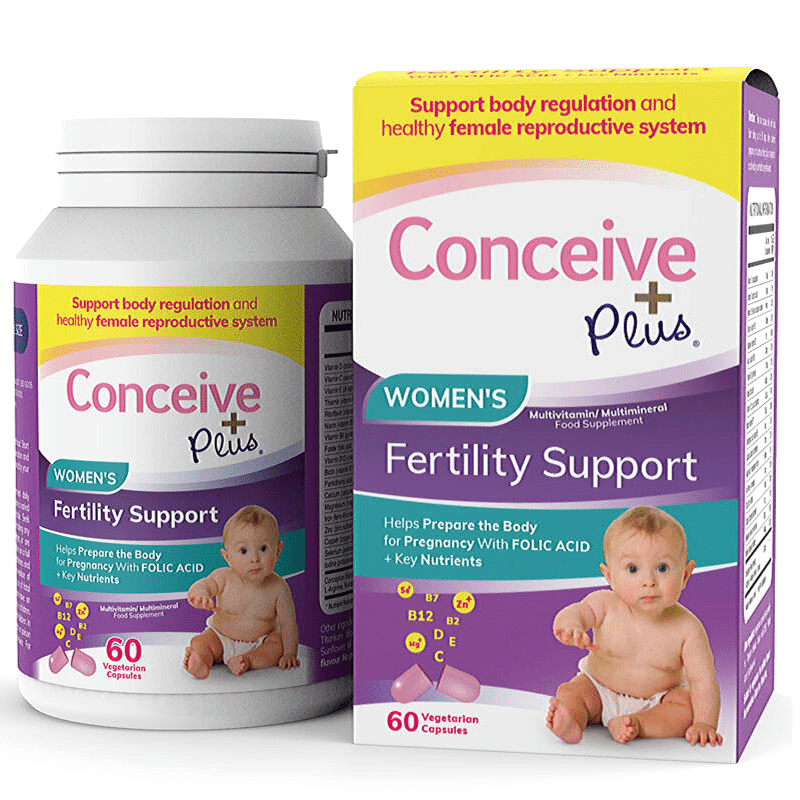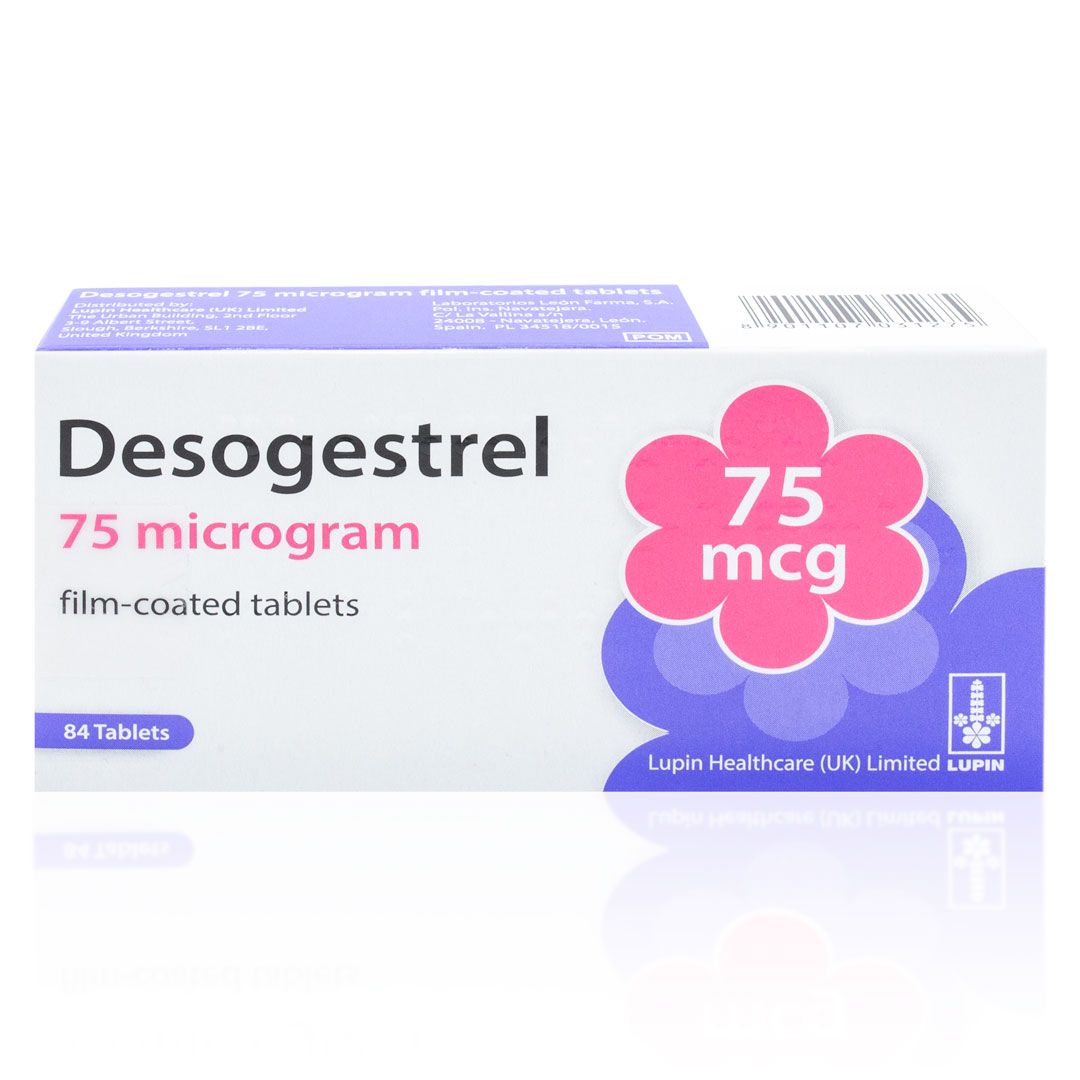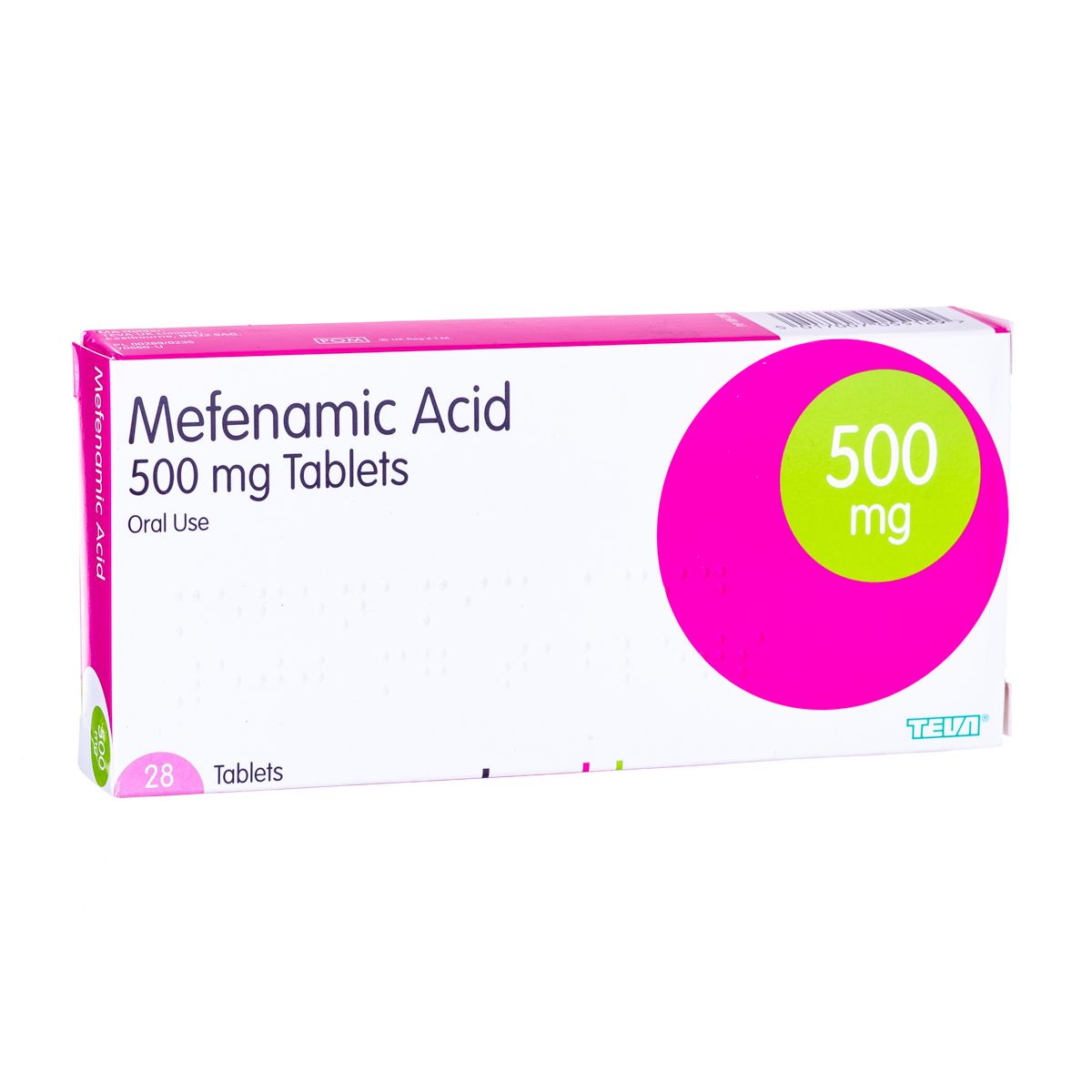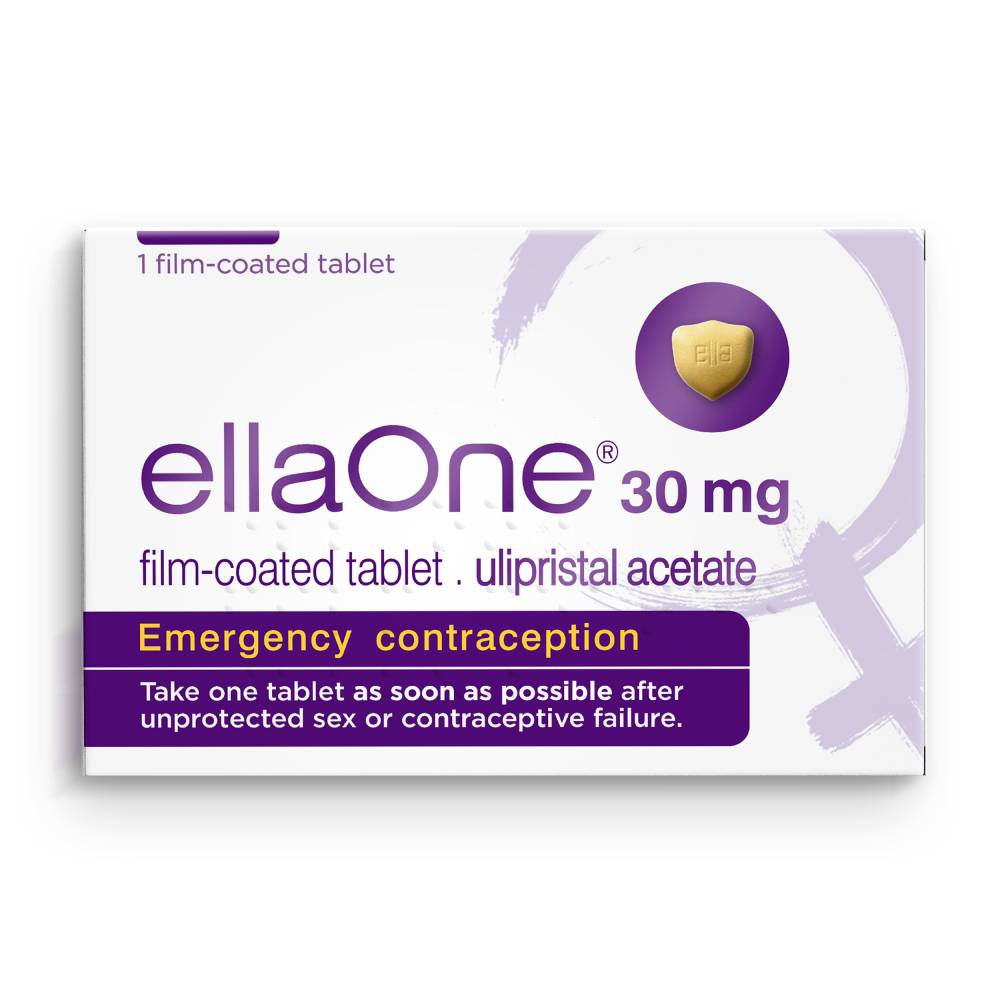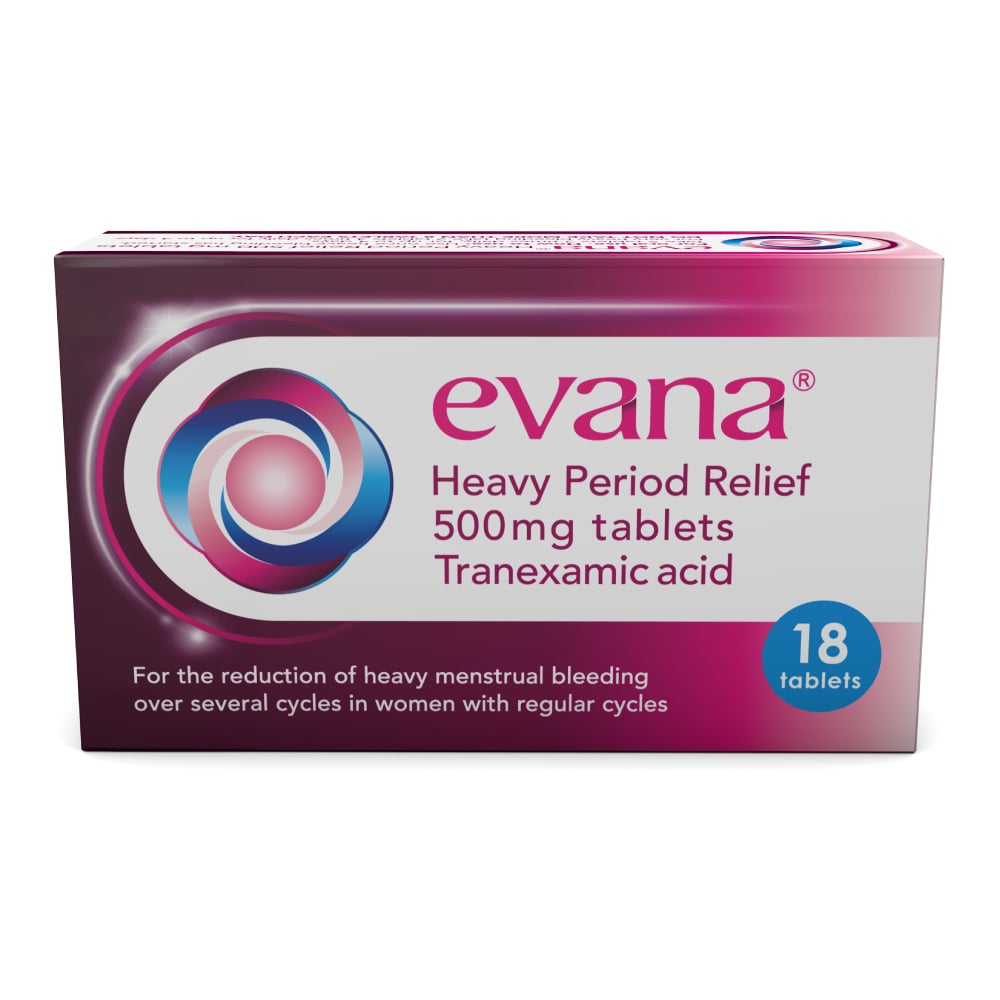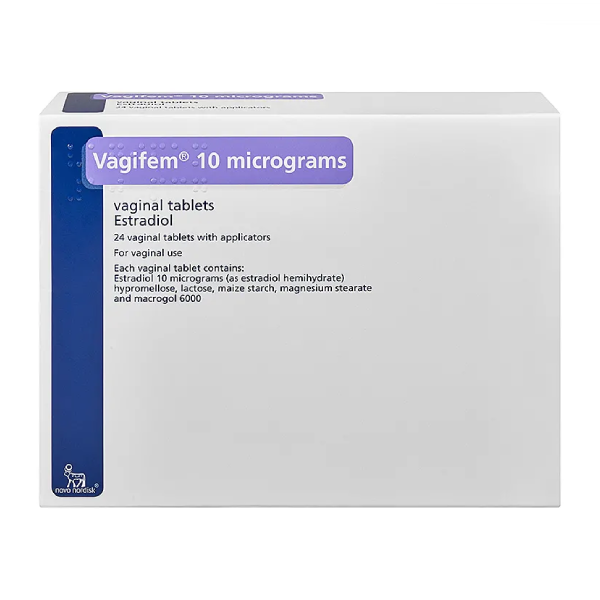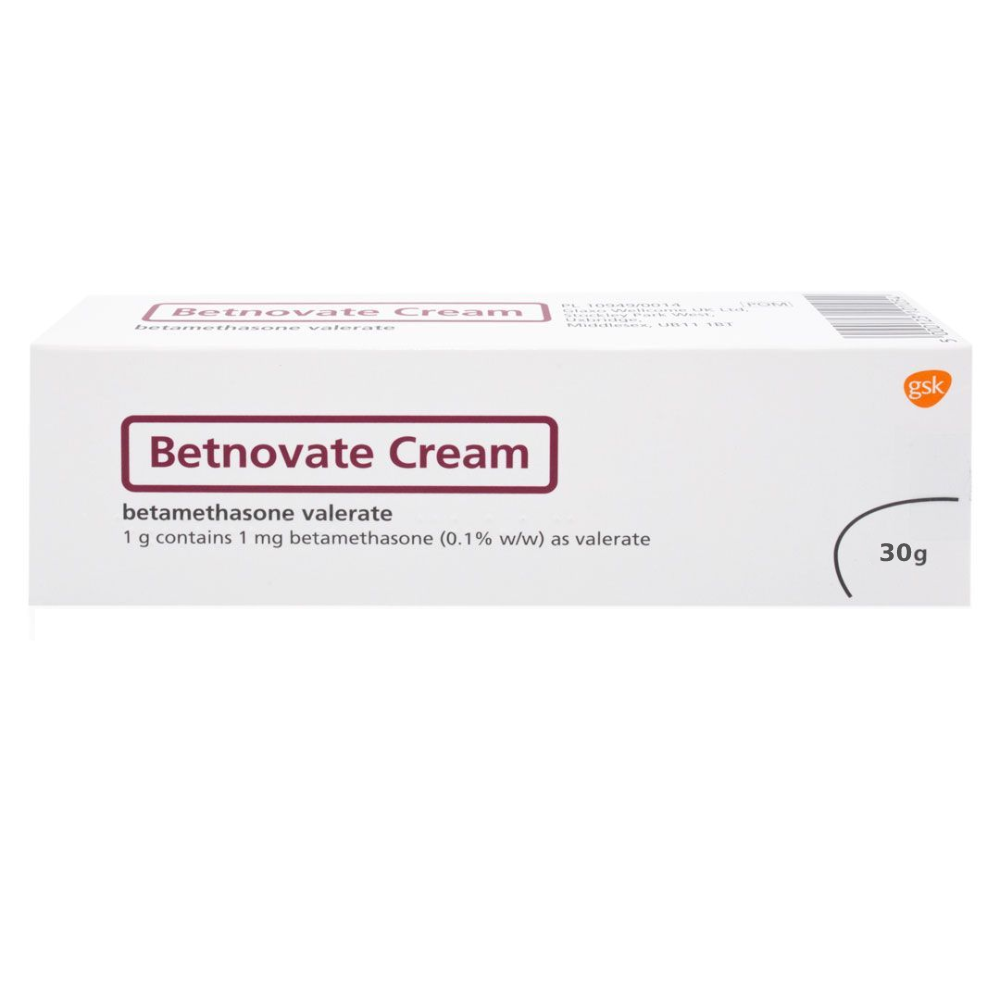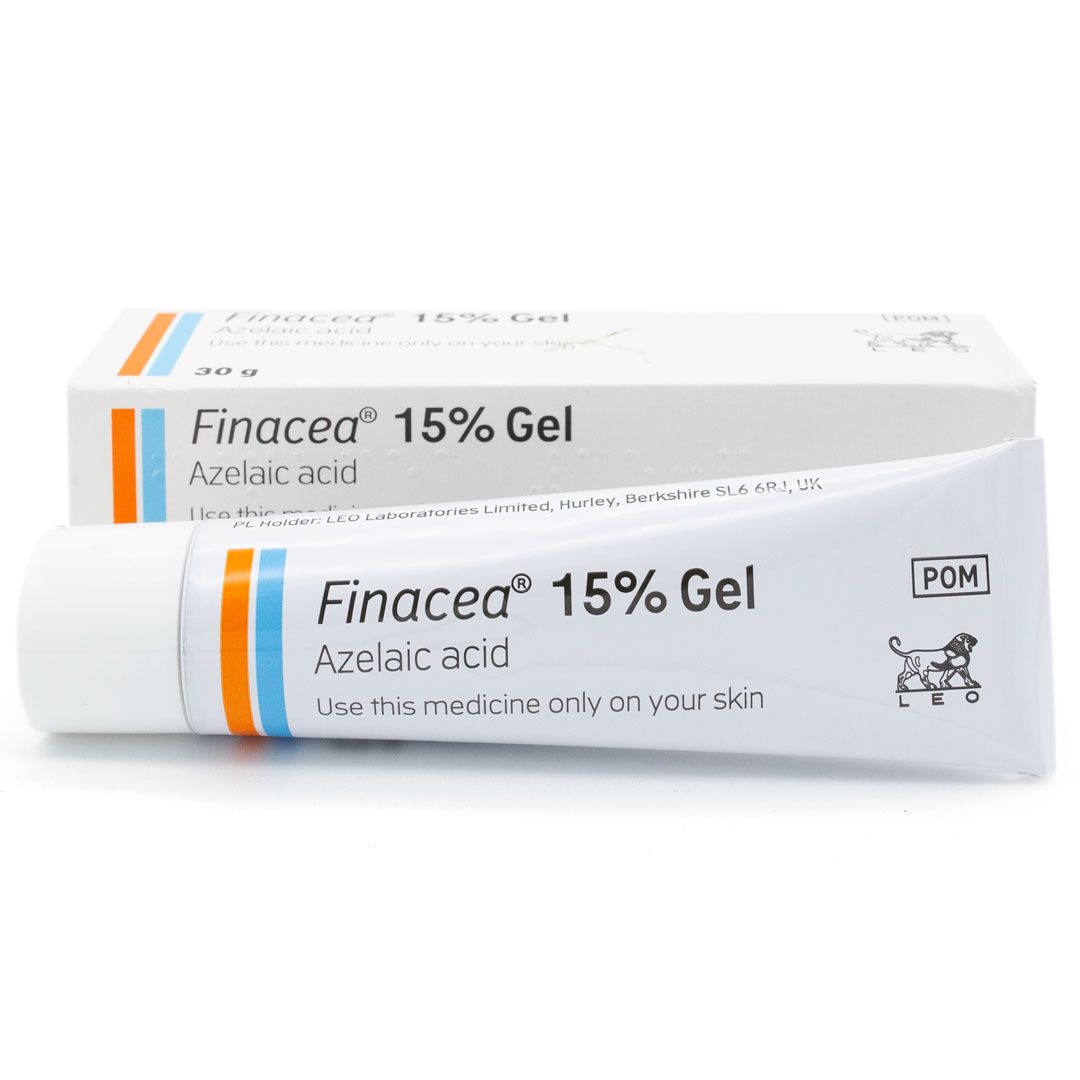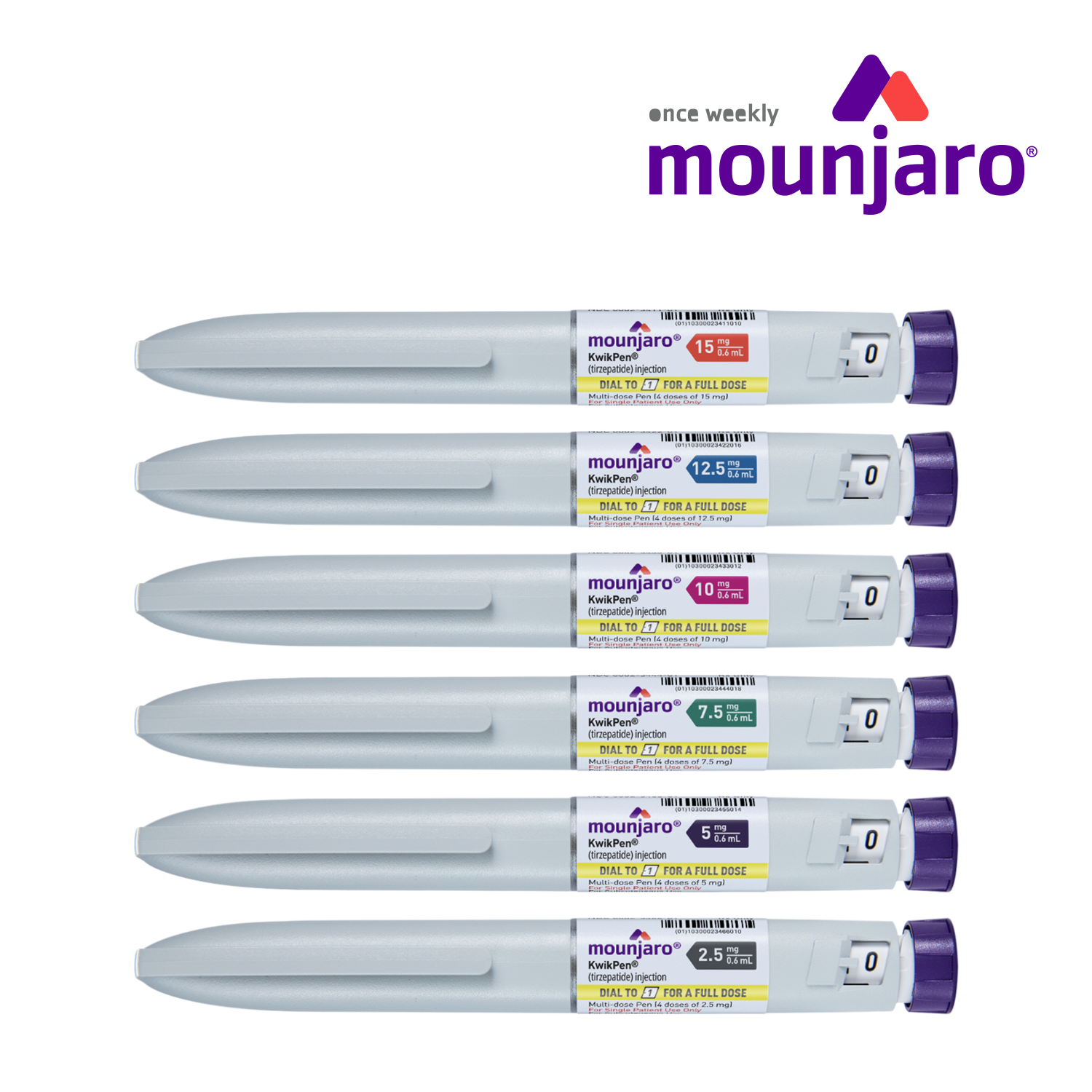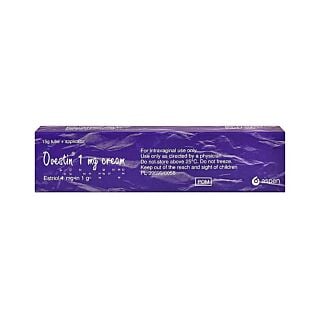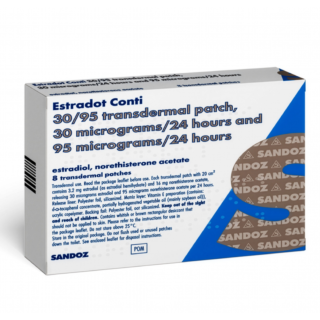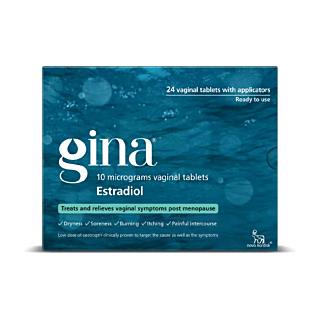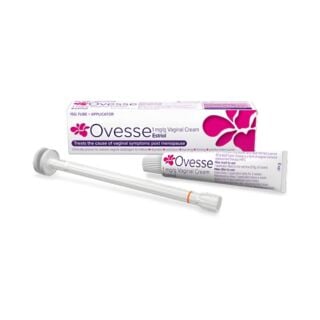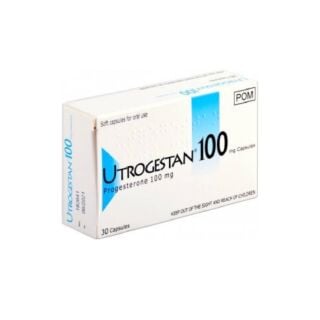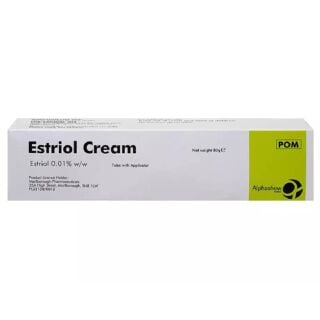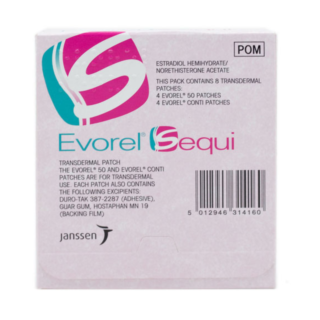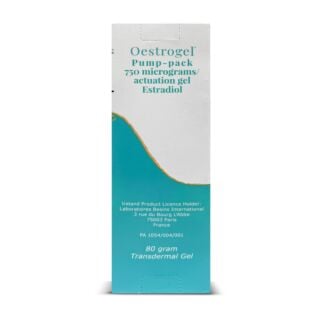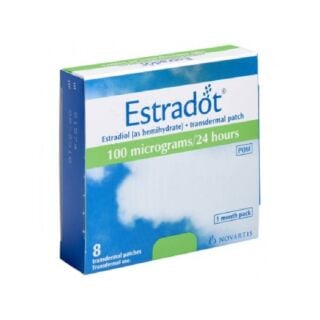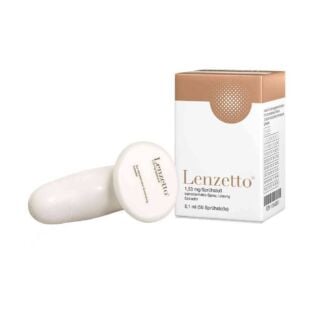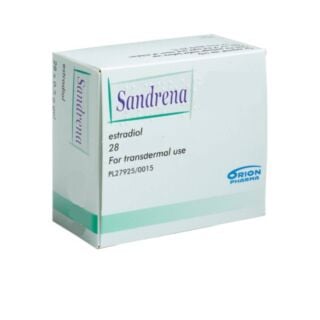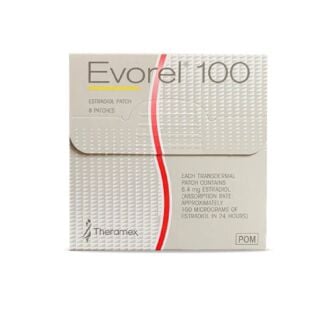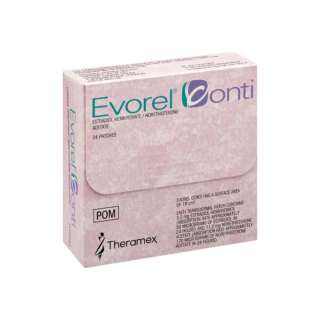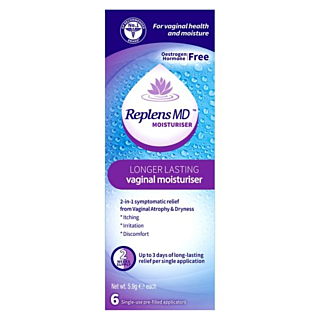Menopause (HRT)
Anyone who has periods—women, some transgender men, non-binary people and intersex people—will go through menopause.1,2 While this process can come as a relief, menopause is not without its own challenges.1 … Read More See less
Everyone’s experience of menopause is unique.2,3 According to the latest menopause statistics, around 25% of people in menopause experience severe symptoms that significantly affect their day-to-day life, while others experience few or very mild symptoms. So, if you’re really struggling with your symptoms, you’re certainly not alone.
Thankfully, there are things you can do to help with your symptoms.1 Let’s find out more about menopause and explore what they are.
What is menopause?
Menopause refers to the point in time when you’ve gone 12 consecutive months without a period.3 It occurs when your ovaries stop producing reproductive hormones (oestrogen and progesterone).3–5
Menopause usually affects women between the ages of 45 and 55, but the mean age it occurs in the UK is 51 years old.5,6
Menopause is a gradual process that occurs in three stages:2,3,6
- Perimenopause (pre menopause) – the time between the start of your menopause symptoms and your last period. Perimenopausal symptoms usually begin in your 40s, around eight to 10 years before menopause, as your ovaries gradually produce less oestrogen. This can cause your periods to become less regular, until they finally stop
- Menopause – when you’ve gone without a period for 12 consecutive months. If you have reached menopause, your ovaries no longer release eggs, and your body doesn’t make much oestrogen anymore
- Postmenopause – the time after your last period. You will stay in postmenopause for the rest of your life. Many menopausal symptoms ease up in postmenopause, but you can continue to have mild symptoms for several years
Menopause, when it occurs before the age of 45, is known as early menopause.3,7
How long does menopause last?
Menopause is the name for defined moment in time, so you don’t stay in this stage.3 However, the hormonal changes caused by menopause can cause mild to severe symptoms that last for seven years or more.4,5
Is ‘male menopause’ real?
The term ‘male menopause’ is sometimes used to refer to symptoms like depression, erectile dysfunction and a loss of sex drive that occur in some men when they reach their late 40s and early 50s.8
However, male menopause is a misleading term as it suggests these symptoms are due to a sudden drop in testosterone, like in female menopause.8 They actually tend to be caused by factors such as late-onset hypogonadism (testosterone deficiency), lifestyle factors and psychological problems.8
Menopause symptoms
The first sign of menopause is usually a change in your periods.2,3,9 They may occur every two to three weeks or they might not occur for months at a time.2 In addition, your periods may become either lighter or heavier than usual.2,3
However, not all women in perimenopause experience a change in their periods.2 Instead, they may experience other perimenopausal symptoms.2
Menopause and pre menopause symptoms can include:2,3,5,9
- Hot flashes (a sudden feeling of warmth that spreads all over your body)
- Difficulty sleeping (insomnia)
- Night sweats
- Vaginal dryness and pain, itching and discomfort during sex
- Recurrent urinary tract infections (UTIs)
- Emotional changes (low mood, anxiety, irritability, mood swings, low self-esteem)
- Problems with memory or concentration (brain fog)
- Heart palpitations (when your heartbeat becomes more noticeable)
- Headaches and migraines
- Breast tenderness
- Joint and muscle pains
- Reduced sex drive
- Menopause weight gain
- Hair loss or thinning
- Dry and itchy skin
- Sensitive teeth and painful gums
- Fatigue
Early menopause symptoms are the same as those that occur with menopause at a normal age.
What causes menopause?
Your reproductive cycle has been continuously functioning since puberty.3 As you get older, this cycle begins to slow down and prepares to stop.3 Your ovaries start making less oestrogen and progesterone and your ovaries stop releasing eggs each month.2,9,10 Over time, this can cause your periods to become less regular and eventually stop.3 This is known as natural menopause.3
Early menopause can also occur this way.7 You’re more likely to experience early menopause if you:7
- Have a family history of early menopause
- Started your periods early
- Smoke
- Are underweight
However, there is often no underlying reason for these changes to occur prematurely in people with early menopause.3,10 This is known as primary ovarian insufficiency.3,10
Premature menopause can also be triggered by treatments for other conditions, such as:9,10
- Radiotherapy or chemotherapy
- Certain hormone medicines
- Surgery to remove your ovaries
How is menopause diagnosed?
Your GP will diagnose you with perimenopause if you’re experiencing:11
- Hot flashes
- Night sweats
- Irregular periods
If you have not had a period for 12 months (and are not using hormonal contraception), you will be diagnosed with menopause.11
There is no specific menopause test. However, your GP may conduct a blood test to check your level of follicle stimulating hormone (FSH) to confirm menopause if you are:11
- 40–45 years old with menopausal symptoms, including irregular periods
- Less than 40 years old with a suspected diagnosis of premature ovarian insufficiency
- Over 50 years old and using progesterone-only contraception
The British Menopause Society advise checking for an elevated FSH level on two blood samples taken 4–6 weeks apart.11
Menopause treatments
There are a number of treatments you can explore:2,3,12,13
Hormone replacement therapy (HRT)
HRT is the main treatment for menopause and perimenopause symptoms. It involves replacing the hormones that are at low levels to relieve hot flushes, brain fog, joint pains, mood swings and vaginal dryness. It can also reduce your risk of developing health problems related to low levels of these hormones, such as osteoporosis and heart disease.
Oestrogen comes as:
- Skin patches
- A gel or spray to put on the skin
- Implants
- Tablets
If you have a womb (uterus), you also need to take progesterone to protect your womb lining from the effects of oestrogen. Taking oestrogen and progesterone together is known as combined HRT.
Progesterone comes as:
- A combined skin patch with oestrogen
- IUS (intrauterine system, or coil)
- Tablets
If you stop taking HRT, your symptoms may come back. But you can usually start taking it again if you want to.
Testosterone
If HRT does not help to restore your sex drive, you may be offered testosterone. Testosterone is also produced by the ovaries and decreases with age.
You can safely use testosterone at the same time as HRT and it can also help to improve your mood and energy levels.
Testosterone comes as:
- Gel
- Cream
You may experience side effects, such as acne and unwanted hair growth. Testosterone can also cause side effects in other people if they have contact with a lot. To avoid this, you’ll need to wash your hands after using it and cover the area with clothing.
Vaginal oestrogen
If you have a dry, painful or itchy vagina, you can insert oestrogen into your vagina as a:
- Tablet
- Cream
- Ring
Vaginal oestrogen treatments do not get into your bloodstream and only work on the bit of the body where you put them. They can therefore be used alongside HRT. However, if you stop using them, your symptoms may come back.
Non-hormonal treatments
If you cannot, or choose not to have HRT, there are non-hormonal treatments you can explore. These include:
- Clonidine – a blood pressure medicine that can help with hot flushes and night sweats
- Gabapentin – an epilepsy medicine that can also help with hot flushes and night sweats
- Antidepressants – if you’re struggling with depression or anxiety
- Vaginal moisturisers – to help with vaginal dryness
- Cognitive behavioural therapy (CBT) – to help with low mood and anxiety, hot flushes, joint pain and sleep problems
- Menopause supplements – such as vitamin B6 and vitamin D
Lifestyle changes
To help you manage your symptoms, you can make certain lifestyle changes:
- Keep to a regular sleep schedule and get plenty of rest
- Eat a healthy, balanced diet including calcium-rich food (kale, milk and yoghurt) and food rich in phytoestrogens (nutrients that have oestrogen-like properties), like soybeans, chickpeas and lentils
- Get plenty of exercise, including weight-bearing activities like walking, running and dancing
- Engage in relaxing activities, like meditation and yoga
- Wear light clothing, to help prevent hot flushes
- Try to reduce your stress level
- Keep your bedroom cool at night
- Avoid potential triggers of hot flushes, such as spicy food, caffeine, hot drinks, alcohol and smoking
- Make sure you get plenty of sunlight, to help your skin produce vitamin d
Sources
- https://www.nhs.uk/conditions/menopause/
- https://www.nhsinform.scot/healthy-living/womens-health/later-years-around-50-years-and-over/menopause-and-post-menopause-health/menopause/
- https://my.clevelandclinic.org/health/diseases/21841-menopause
- https://cks.nice.org.uk/topics/menopause/background-information/prevalence/
- https://northeastlondon.icb.nhs.uk/health-advice/womens-health/menopause/
- https://cks.nice.org.uk/topics/menopause/background-information/definition/
- https://www.nhs.uk/conditions/early-or-premature-menopause/
- https://www.nhs.uk/conditions/male-menopause/
- https://www.nhs.uk/conditions/menopause/symptoms/
- https://www.mayoclinic.org/diseases-conditions/menopause/symptoms-causes/syc-20353397
- https://cks.nice.org.uk/topics/menopause/diagnosis/diagnosis-of-menopause-perimenopause/
- https://www.nhs.uk/conditions/menopause/treatment/
- https://www.nhs.uk/conditions/menopause/things-you-can-do/

Free delivery when you spend over £39

100% discreet delivery for every item ordered

Fully regulated UK pharmacy
How to test for the menopause
With a menopause testing kit, you can test for the menopause in the comfort and privacy of your own home. If you’re still having monthly periods, take the first menopause test during the first week of your cycle. If this result is negative but you’re still having symptoms, repeat with the second test a week later. If you’re no longer having monthly periods, take the first test anytime during the month and take the second test a week later.
Taking a menopause test is simillar to taking a pregnancy test; you hold the test into your urine stream and read the results after a few minutes, with the lines in the display window indicating whether the test is positive, negative or invalid. Alternatively, you can get a blood test from your GP to determine whether you’re in the menopause or not.
What are the symptoms of menopause?
Women usually start menopause between the ages of 45 to 55, with the UK average currently standing at 51.
The time before your periods stop is the perimenopausal stage, and it’s at this time that you may begin to experience symptoms like hot flushes, night sweats, a reduced sex drive, difficulty sleeping, aches and pains, mood changes and problems with memory and concentration.
About 8 in 10 women will have symptoms for some time before and after their periods stop.
What is early menopause?
Early menopause is when a woman’s periods stop before the age of 45.
It can happen naturally if oestrogen is no longer being produced, as the result of cancer treatment, or from a medical condition like Turner syndrome.
The signs of early menopause are similar to the typical symptoms of menopause, including hot flushes, night sweats, vaginal dryness and a lack of interest in sex, difficulty sleeping, low mood, and problems with memory.
The combined contraceptive pill or HRT is usually prescribed as a substitute for missing hormones.
What is the menopause?
The menopause is a stage that women usually experience when they are between the ages of 45 to 55, and it refers to you stop having your periods. This can be sudden or gradual, for example, your periods may become infrequent before they stop altogether. The stage before your periods stop is called the perimenopausal stage.
When your periods stop, this means your oestrogen levels are in decline, your ovaries are no longer working and you can’t become pregnant. In the UK, the average age for a woman to go through the menopause is 51.

